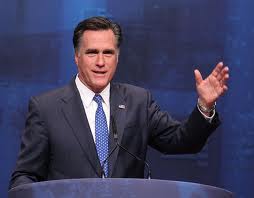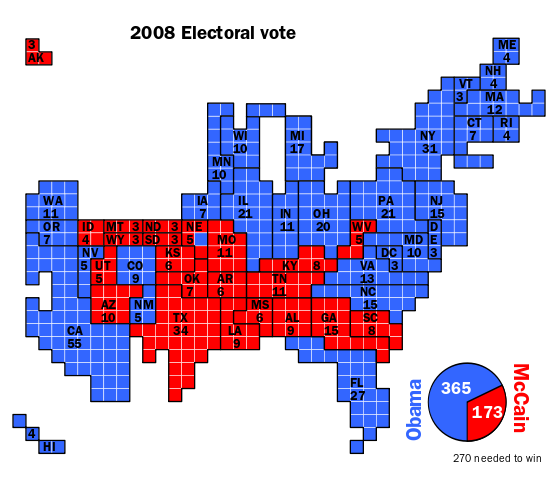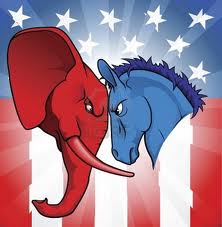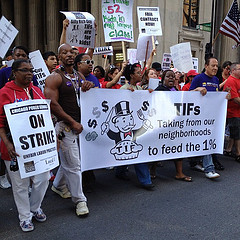
The Money Trail: TV adverts are the most costly, but campaigns still spend big on old fashioned buttons and yard signs
From the coverage of the US election in the UK news media it would be easy to get the impression that we are witnessing a single battle of giants, or a least of the giantly funded. In mid-October the Center for Responsive Politics reported that the campaigns of Mitt Romney and Barack Obama had raised almost $900 million combined. But the presidential election is not the only place where money talks loudly.

All to Play for in the Home Stretch
It’s a little over three weeks to go before America votes in the 2012 presidential election, and things have suddenly turned interesting. For a while, orthodoxy was that Obama was likely to get re-elected and, maybe, by a substantial margin. As late as early October, Romney was still seen as a weak candidate with a history of vote losing gaffes. Those of us who thought the GOP might win the White House were treated like Right-wing Cassandras. It seemed like the European Union was more likely to win a Nobel Peace Prize…
Suddenly, the national polls are even and the swing states are getting close. At this dramatic point in the race, I’d make the following observations…

Only 22% of Americans think they are in the 47%
When Mitt Romney’s 47% comments came to light, many were surprised that Romney’s claim that 47% of households do not pay income taxes is, in fact, true.
To many people, this is outrageous. Why should they be paying the federal taxes they do while so many fellow citizens get a free ride?

Does the Republican Party actually know who votes for them?
You would think that the US presidential campaign teams would have a pretty good idea of what sort of person is likely to vote for them. A recent book suggest that the Democrats have developed highly complex ways of figuring this out. On the other hand, given two recent events, I’m not sure the Republicans have any idea.

Romney’s 47% and What it Reveals About the American Right
Aside from cementing Obama’s tenuous lead (Silver now puts Obama’s chances at above 80%), Mitt Romney’s ‘47% gaffe’ also proved unexpectedly useful, if vexing, for conservatives.

The Electoral College: Debunking myths used in its defence
Many people know that it is electors in the electoral college that actually elect the president, not citizens voting on election day. They also may know that this system allows the candidate coming in second to win the election, as occurred in 2000, and thus violates the democratic norm of equality in voting. But more puzzling (and less reliable) are the arguments made on behalf of the electoral college. Here are four of the most common — and why they are wrong. 1. The electoral college protects the interests of small states The core justification is that it balances local and national interests, protecting small states from majority rule. Yet states with small populations do not have common interests to protect and …

A Choice Between Two Candidates — and a contest between two campaigns
Mitt Romney and Barack Obama not only have different blueprints for America. They also have different blueprints for their campaigns for President of the United States of America. Look for example at the four key elements of message (PR), money (fundraising), media (advertising), and mobilization (field operations/get-out-the-vote). The Obama re-election effort is, arguably to an even greater extent than David Plouffe has already acknowledged the 2008 campaign was, modeled on George W. Bush’s 2004 campaign: In terms of message, the goal is to paint Romney (then John Kerry) early as a man of questionable character unfit for the presidency, present Obama (Bush) as a man of principle who you may not like but who is doing what he believes is …

What Does the Chicago Teachers’ Strike mean for Obama and the Democrats?
Angry and extensive coverage has characterised last week’s Chicago teachers’ strike as a series of splits: children’s interests vs. teachers’ interests; ‘reform’ vs. ‘status-quo’; elites vs. the public. Whereas a majority of Chicagoans supported the strikers, much of the media coverage has been opposed. CNN’s coverage is a good example (seeNavarrette’s eye-popping statement that unions ‘protect teachers from public demands for…a better education for our children.’) The first two of these splits fit a long-standing trope in education policy from A Nation At Risk to No Child Left Behind. It is encapsulated in Terry Moe’s recent book ‘Special Interest’ amongst many others: the reformist demand for greater charter- or voucher-based choice and accountability, and opposition to teacher unions. But the most interesting split here is within the Democratic …









